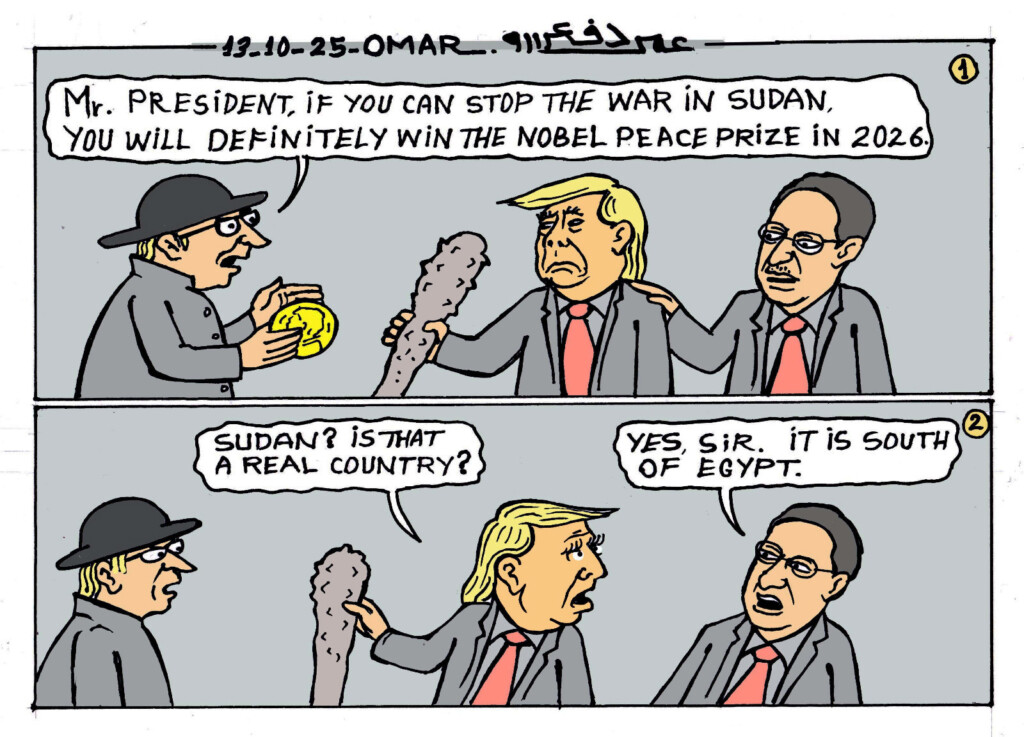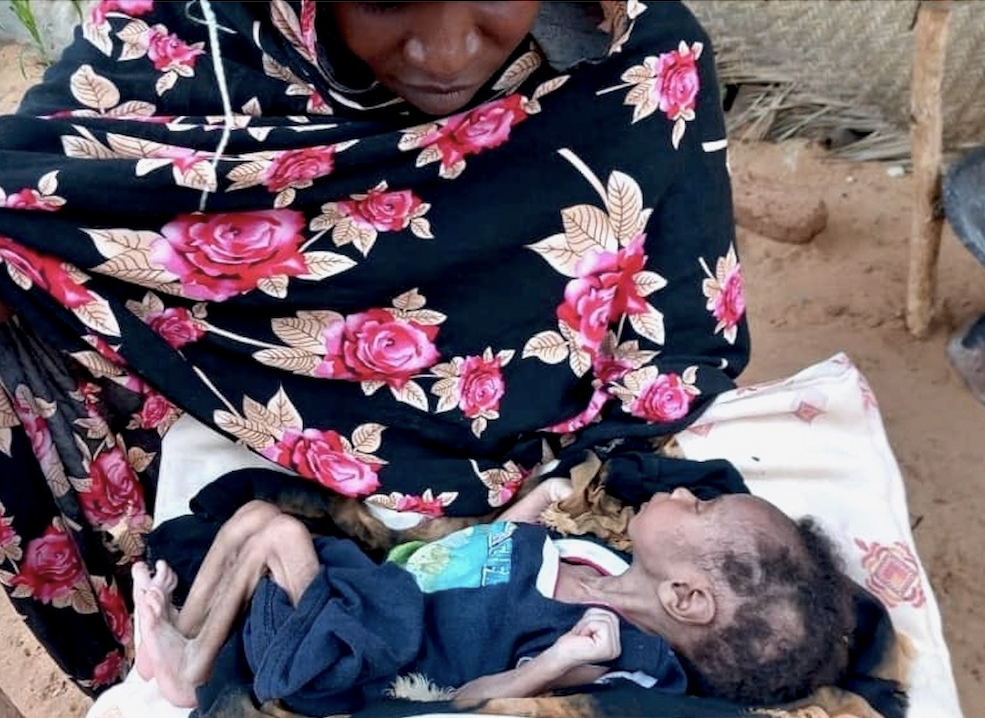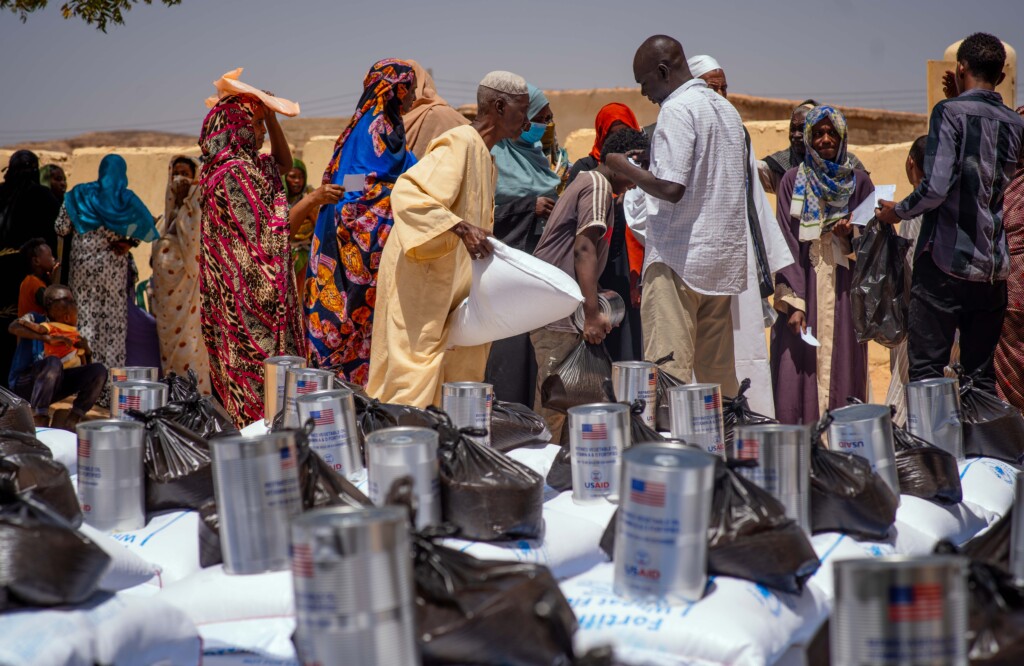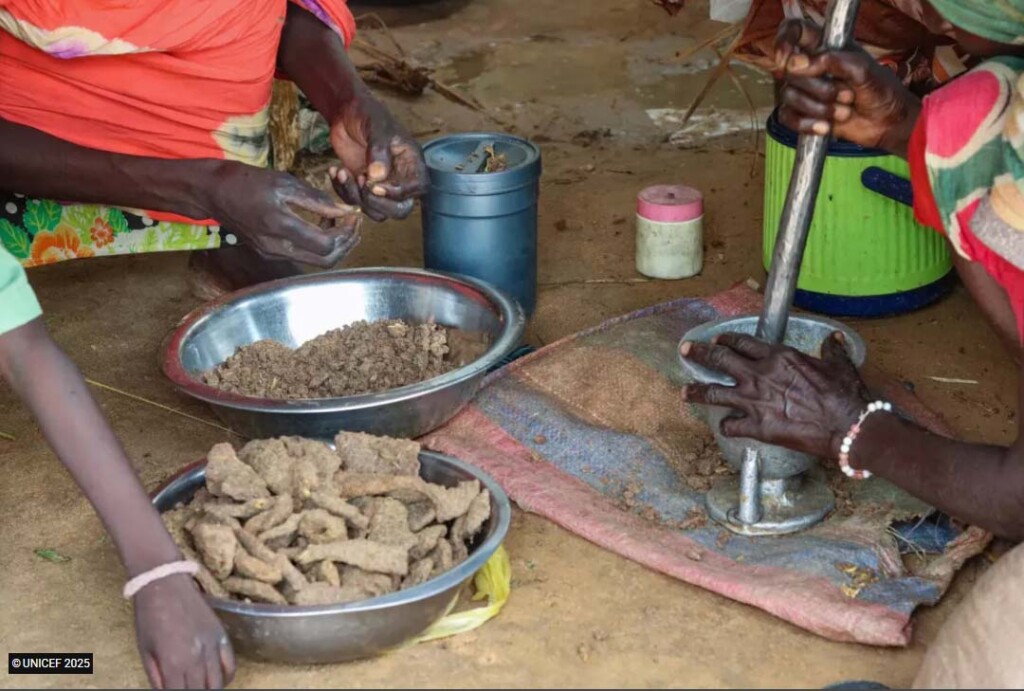Op-ed: ‘Food to burn’ – US govt destroys expired aid stocks amid Sudan famine

Cartoon by Omar Defallah for Radio Dabanga
Over a year ago the United Nations declared famine in Sudan, using internationally recognized benchmarks in making its determination. In the intervening year, most of Sudan has experienced further serious degradation of the agricultural sector and steep losses in production. These are consequences of the brutal internal war that continues to rage and which the international community has proved incapable of halting. Neither the UN, the Arab League, or Western actors have shown the willingness to intervene forcefully, either diplomatically or through a meaningful imposition of sanctions on those sustaining conflict.

(File photo: Team Zamam)
But something else occurred following the August 2024 UN famine declaration: the second election of Donald Trump brought to power in Washington a cruel willingness to abandon any real effort to respond to Sudan’s desperate humanitarian needs. The US Agency for International Development was dramatically scaled back and reorganized in a way that left only a vestige of what was formerly the premier U.S. effort to provide foreign aid. There have been huge cuts to UN agencies and international humanitarian organizations. Secretary of State Rubio has been widely excoriated for presiding over the demise of USAID and particularly for his mendacious claim before Congress that “no one has died” because of cuts to USAID. The opposite is true and the deaths have begun to pile up in large numbers, especially in Africa.
‘Nobel Peace Prize aspirants should be assessed on the basis of their full character and actions…’ – Eric Reeves
An administration led by a man who once referred to Africa as a collection of “shit-hole countries” could hardly be expected to care that the first deaths resulted from a freeze on USAID funds for the U.S. HIV/AIDS treatment program PEPFAR—a program that had already saved millions of lives and has been conspicuously successful in Africa. Deaths began to mount in February of this year; and while we have no authoritative census of total deaths from this freeze and other outright cuts to aid, we do get a larger sense of the accelerating catastrophe going forward from The Lancet: the distinguished British medical journal recently published global forecasting models suggesting that USAID cuts “could result in more than 14,051,750 additional all-age deaths…by 2030.”

As shocking as all this may be, there is an even greater shock awaiting anyone who has not followed the fate of the 500 tons of high-energy, nutrient-dense biscuits designed for rapid nutrition delivery in emergency situations. The food was sitting in a U.S. warehouse in Dubai (United Arab Emirates) when the Trump administration announced its intention to burn it. When news of this became public, a State Department spokesperson disingenuously declared: “If something is expired, we will destroy it. It’s a matter of whether or not it’s safe to distribute.” The food was in fact destroyed in July—at considerable cost. And yet it could easily and safely have been donated to the UN’s World Food Program or a willing humanitarian organization.
It seems of no matter to the Trump administration that even if nominally expired, these biscuits would certainly be welcomed by desperately malnourished people around the globe. For the painful underlying motive for his destruction of holdover humanitarian aid was nothing less than a desire to display a willingness to abandon any foreign aid efforts by the Biden administration; it was a petulant decision made with only the most disgraceful motives.
Wherever the food was originally destined to be delivered, once in the hands of WFP or a relief organization, it becomes “fungible” and could target any area where most needed. The cruel budget cuts to WFP—chiefly by virtue of the gutting of USAID and its support for non-governmental organizations and humanitarian agencies—have been felt worldwide; however, one group has been particularly hard hit by food shortages: Sudanese displaced persons and refugees who have fled to western Darfur and eastern Chad; they are severely under-served by both WFP and the UN High Commission for Refugees, even as they are among the world’s most invisible and desperate displaced human beings.
I know from personal experience running a small humanitarian program in the Tina area (on the border between Chad and North Darfur) that this food would have found immediate life-saving use, especially among children under five suffering from acute malnutrition. Rates of malnutrition for all age groups have dramatically increased this year in Darfur as displacement has grown with increasing violence; the struggle to find food is truly desperate. Severe acute malnutrition (SAM) in children under five years may produce mortality rates as great as 50%.

Those destroyed 500 tons of food could have supplied our program for over a year and been distributed in the most efficient and effective ways among the population we serve. As it is, our budget for food may soon be reduced, even as too many children look like this one.
I wonder if Mr. Trump or Mr. Rubio would dare look on this terrible scene, or try to explain to the mother holding her dying child why she has been denied the food that these men chose to burn.
Disclaimer: The views and opinions expressed in this article are those of the contributing author or media and do not necessarily reflect the position of Radio Dabanga.

(Supplied)
For the past five years, Prof Eric Reeves, has worked to create, fund, and organize a humanitarian aid project in Zamzam IDP camp, originally focused on responding to girls and women traumatized by sexual violence but increasingly responding to the need for food aid. He is a trustee of the Darfur Bar Association, and a Senior Fellow at Harvard University’s François-Xavier Bagnoud Center for Health and Human Rights. He has spent more than twenty years working virtually full-time as a Sudan researcher and analyst, publishing extensively both in the US and internationally. He has testified several times before the Congress, has lectured widely in academic settings, and has served as a consultant to a number of human rights and humanitarian organisations operating in Sudan. Working independently, he has written on all aspects of Sudan’s recent history. His book about Darfur (A Long Day’s Dying: Critical Moments in the Darfur Genocide) was published in May 2007. He has recently published Compromising with Evil: An archival history of greater Sudan, 2007 — 2012 (available at no cost as an eBook)
This op-ed was initially published here











 and then
and then